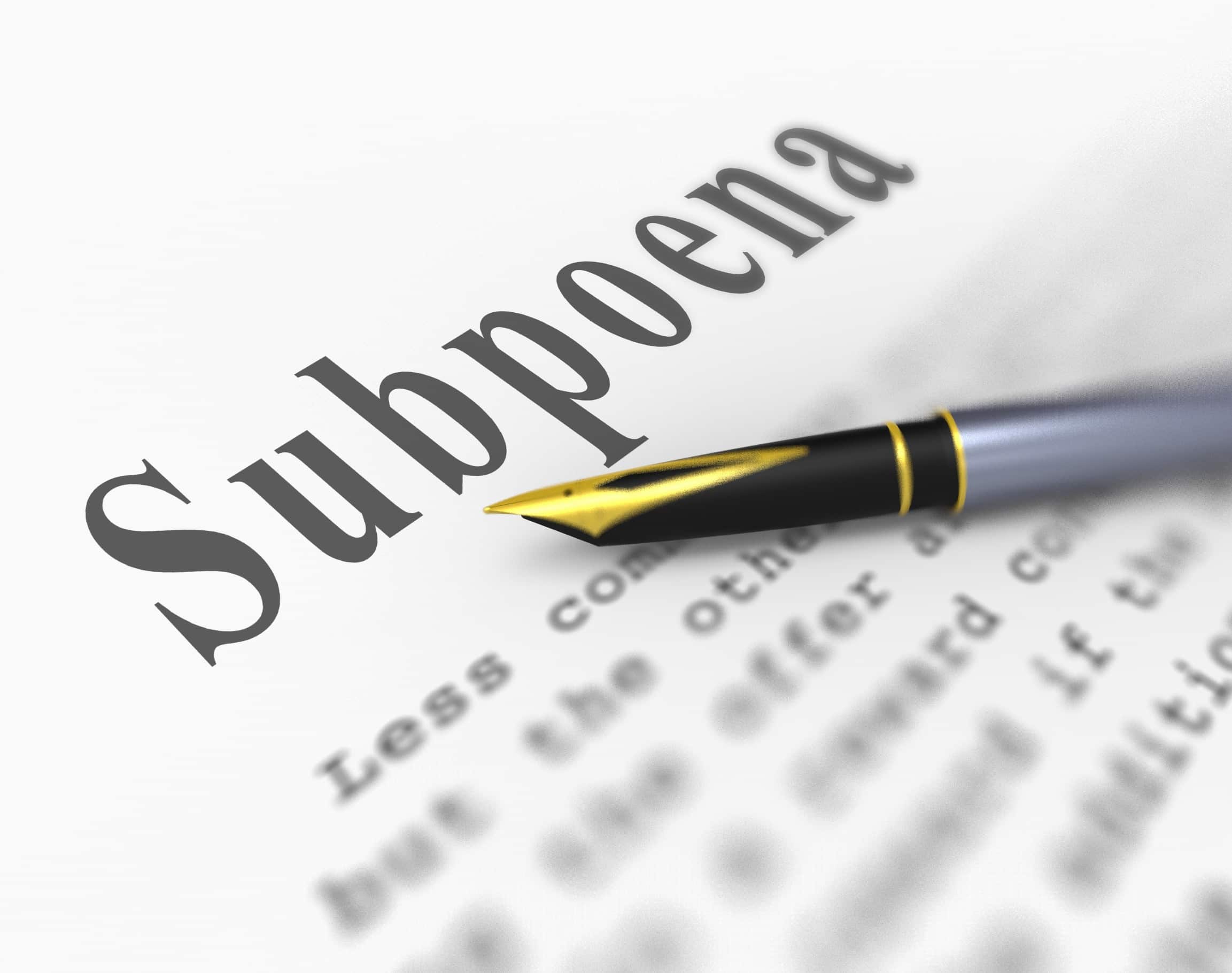 There have been a significant number of news stories about government officials choosing to ignore legislative subpoenas and whether they will face criminal charges as a result. Federal subpoenas, whether issued by Congress ort a federal court is serious business.
There have been a significant number of news stories about government officials choosing to ignore legislative subpoenas and whether they will face criminal charges as a result. Federal subpoenas, whether issued by Congress ort a federal court is serious business.
Ignoring a federal subpoena scan have some very harsh consequences for refusing to comply.
That’s why everyone should understand what a subpoena is and what it means.
If you are curious about the subpoena process and what it means, including what types of penalties are associated with ignoring them, you’ve come to the right place. Here is what every American should know about federal subpoenas and what ignoring one can do to your future.
What Is a Federal Subpoena?
A subpoena is relatively straightforward to understand since it’s simply a request that you appear to give testimony or produce documents. This legal document will name a person who must appear to testify in court as a witness or produce specific records. A federal subpoena issued by the federal government has federal criminal penalties attached for non-compliance.
Do You Have to Respond to a Subpoena?
If you are served a federal subpoena, you are obligated to respond. You may not be interested in helping the government with their case or worry that responding to the subpoena could cause you problems, but none of that matters. Under federal law, you must respond.
It’s important to note that your response isn’t as cut and dry as whether or not you have to respond. It’s strongly ill-advised to ignore a subpoena, but you have options regarding how you respond. In general, you can take one of these options:
Full Compliance
This option means that you can produce all the documents the government wants to testify without holding anything back. Suppose the federal government is not targeting you in its investigation, and there are no concerns about confidential or protected information. In that case, this may be the option you choose. Seek advice from an experienced attorney before you comply with the subpoena to ensure someone is keeping your best interests in mind.
Withholding Documents or Information Deemed Privileged
Even when the federal government subpoenas you, you have the right to withhold documents or information that either fall under attorney-client privilege or protect you from incriminating yourself. The federal government cannot demand that you give up your protections against self-incrimination, as stated in the Constitution’s Fifth Amendment. You also are not required to produce the information you shared in confidence with your attorney (as long as it’s not subject to the crime/fraud exception).
If you believe you have documents or testimony that need to be legally withheld, then make sure you work with your attorney to guarantee you are following procedures that ensure your compliance.
Challenge It
You can challenge a subpoena if you feel you have the grounds to, but understand that your ability to do so depends on the kind of subpoena served to you and the federal agency that issued it. Work with your attorney to see if filing a motion to quash a subpoena is the right way to proceed.
What If You Ignore the Subpoena?
If you decide to ignore a federal subpoena, then there are risks that you are taking. Ignoring a subpoena in these circumstances means that the agents handling the investigation will assume you had a reason to do so. You may face a motion to compel, resulting in a motion for contempt of court.
A motion to compel can enforce a federal subpoena. That means that if you ignore the subpoena, the agency that issued it can file a motion with the court to force you to comply. If you still refuse at that juncture, you can risk being in contempt of court, which is a federal crime.
It’s vital to understand that contempt of court is a separate matter from the subpoena, and prosecution for it can result in jail time and fines. The penalties associated with contempt of court depend on the circumstances surrounding the case, and it won’t make the underlying matter of complying with the subpoena disappear.





